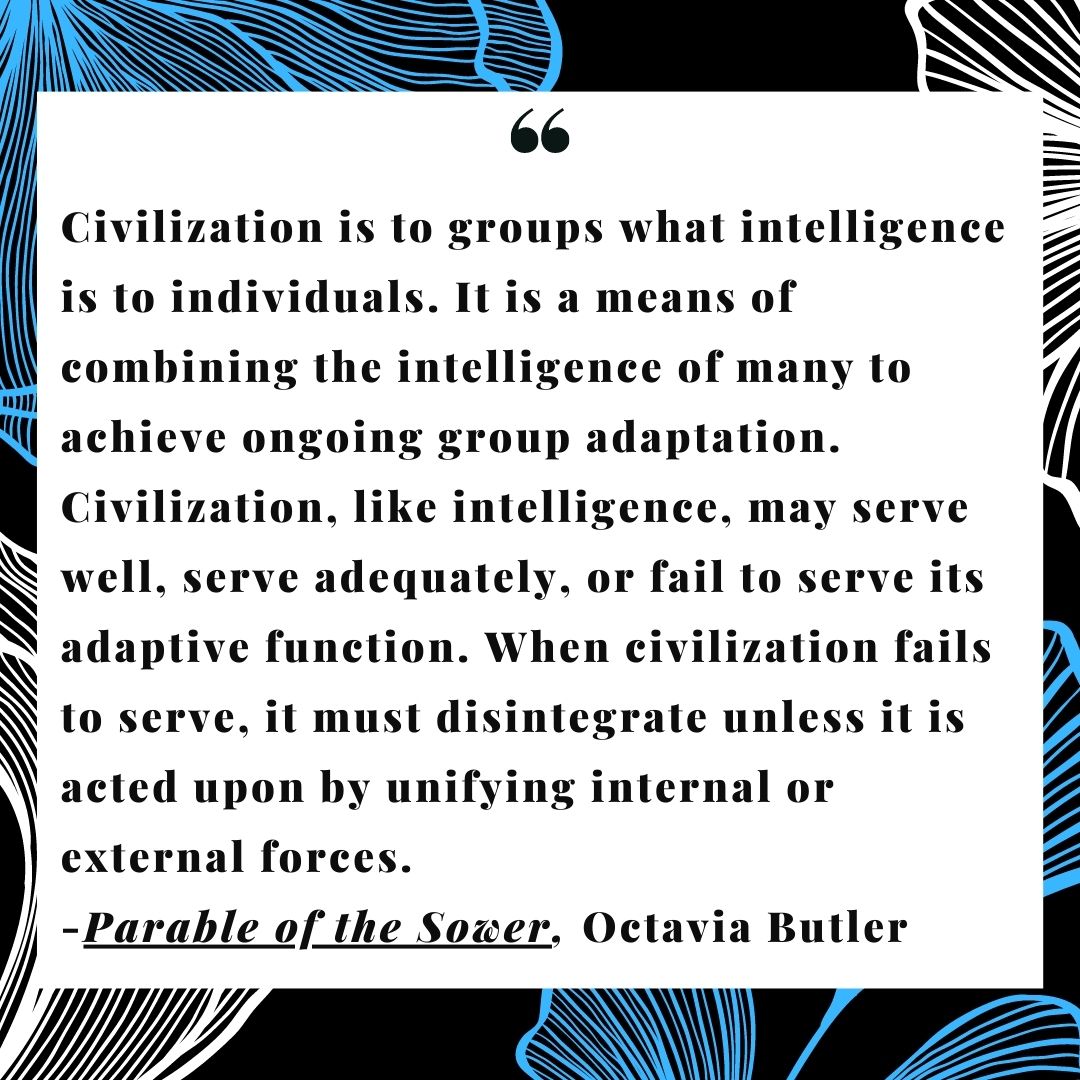News & Insights
In Conversation with Jacquelyn Iyamah

We are absolutely thrilled to be in community with Jacquelyn Iyamah, a writer, designer and founder of Making the Body a Home. Her book, Racial Wellness, comes out November 7, 2023!
Who are you? Who is your community and how do they love you?
I am a Nigerian designer, writer, and cultural worker whose work centers on the nurturing well-being of communities of color living in a racist society. My community consists of friends, family, my cat, writers, thinkers, creatives, and cultural workers.
They love me in a way that feels similar to how bell hooks described love - through a combination of care, trust, commitment, trust, knowledge, and responsibility.
Your forthcoming book is Racial Wellness. You frame your approach through the lens of racism as abuse. Why did you choose to write about healing from racial trauma when it comes to the dialogue on racism?
When we begin to reframe racism as abuse — it allows us to understand the ways in which racism creates deep mental, emoti...
Pedagogy of Anti-Racism 101
Anti-Racism Isn’t Just What You Teach, but How You Teach It
Diversified book lists are a fraction of anti-racist teaching, not an accomplishment or destination. At The Institute, we are concerned with the official curriculum, and also the hidden and operational curricula of a school, classroom, or organization. Anti-racist education is about what we teach and who is on the walls, but it’s also about how we teach, how we engage with our students and their communities.
Professors Nancy Kang and Silvio Torres-Saillant write: “Racism, for example, operates as a pedagogy that informs the thoughts, feelings, and actions of whole societies, not just individuals.” If racism operates as a pedagogy, a way of teaching, so too must anti-racism. Anti-racism must operate as a pedagogy that is rooted in love and wholeness, not in deficits or low expectations or excuses.
Paolo Freire offers a liberating approach in his seminal Pedagogy of the Oppressed: “No pedagogy which is truly liberating can...
5 Tips for Grad Students with Freedom Dreams
From Our IG Live Conversation with Ashley Y Lipscomb
Urgency and perfectionism can make graduate school extremely difficult. We want to share some tips and frames that have helped our co-founder, Ashley Y Lipscomb, with input from other grad students and learning specialists. The world right now is not as loving as we dream it to be. We don’t have to do grad school (or anything) the way it has been designed to be. These are important reminders for “how to do life.”
- Get that calendar right. (Yes, time is a colonial construct. AND, we need to manipulate it for our learning and liberation.)
- Put all commitments in your planner/calendar, not just schoolwork (example: practices, appointments). By annotating both, you create a clear picture of all of your various time commitments. This will help facilitate how you prioritize your time.
- Block out time: being time oriented allows you to organize your time including yourself
- Be clear: Be specific in language with tasks that you...
The Rhetorical Limitations of Hate
At the Institute, we are fueled by an ethic of love: love for our students, love for our communities, and love for ourselves. It is love, rather than fear or control or indoctrination, which fuels our pedagogy. For more on our ethic of love, check out our previous blog post.
This blog post is addressing our imaginations and language and the material implications of our language. We acknowledge the very concrete impacts of imagination. As adrienne maree brown wrote in Emergent Strategy: “Imagination gives us borders, gives us superiority, gives us race as an indicator of ability. I often feel I am trapped inside someone else's capability. I often feel I am trapped inside someone' else's imagination, and I must engage my own imagination in order to break free.” While this may seem like a mere reflection on semantics, we know that words and ideology fuel culture and systems.
The false binary of love versus hate does not serve us. Language like “Stop Asian Hate” conjures too much indiv...
In Conversation With Our Program Coordinator

We are proud to talk with Kimberly Ramos, Program Coordinator at The Institute for Anti-Racist Education. Kim joined our community as a Create Freedom Artivist Fellow in 2021 and is now lead organizer facilitator! Kimberly Ramos is an abolitionist, artist, and anthropologist based in Oxnard, California. She is currently an undergraduate student at California State University Channel Islands and will be majoring in Anthropology.
Q: Who are you? Who is your community and how do they love you?
A: I am a daughter, scholar, lover, creator, and a proud Latina. I find community with fellow abolitionists, anthropologists and other first-generation students like myself. These communities remind me what love is by allowing me to be myself wholeheartedly, reminding me to slow down and enjoy every moment, and by standing with me during my good moments and by bad.
Q: What are your freedom dreams?
A: I dream of a world where love is not something that is thought to be a weakness but is viewed an...
Forgiveness Without Accountability Keeps Us Trapped
Forgiveness Without Accountability Keeps Us Trapped
Jul 14, 2023
Nelson Mandela Centre of Memory & The Apartheid Museum
I knew visiting South Africa would present many opportunities to learn about the activists, dissenters, and disrupters that worked tirelessly to end apartheid. Even more so, I knew Nelson Mandela would be essential to that legacy. At the Nelson Mandela Centre of Memory and the Apartheid Museum are replicas of the prison cell he was incarcerated for 18 years on Robben Island. Having not yet visited the sight, I walked in these replicas with a feeling of, dare I say, anger. Because directly across from the replica at the Centre of Memory are photographs and stories of the ways his fight for justice sacrificed his relationship with his family. Several panels detailing his life highlighted the ways the “liberation struggle had become Mandela’s life and the ANC his family,” and throughout his quest for freedom, he sacrificed “domestic life to the struggle.” During his...
On Emerging Technologies and AI
We have heard from many educators across the country– even our friend Dr. Slater posted about it– who are struggling to address AI like ChatGPT.
How do we, as anti-racist educators, wrestle with the fundamental flaw in emerging technologies like AI?

We know that AI and ChatGPT are cause for concern for educators, and they should especially be cause for concern for anti-racist educators.
ChatGPT raises questions about plagiarism, ethics, and privacy. We can facilitate reflection and dialogue about intellectual property, data privacy, and compensation.
AI also illuminates issues of racism and bias and misinformation and gaps of access. Basically, artificial intelligence replicates the oppressive systems in place.
In The internet is already racist. AI chatbots are making it worse, Sarah Posner reminds us that “ bias problems plagued tech well before the chatbot craze. In a 2018 book "Algorithms of Oppression,"internet studies scholar Safiya U. Noble exposed how racism was bake...
The Institute for Anti-Racist Education Receives Funding to Improve Literacy and Equity in Schools through The Create Freedom Learning Model
Today, The Institute for Anti-Racist Education announced it joined a national cohort of organizations receiving funding and support from NewSchools Venture Fund to create or expand on innovative ways to make literacy instruction more effective for historically underserved student groups.
The investment from NewSchools will help The Institute for Anti-Racist Education create a K-12 school model for the Create Freedom Learning Model, a cross-disciplinary instructional design tool that teaches students to think critically about the most pressing problems their communities, country, and world are facing.
“This funding gives us the unique opportunity to partner with schools to create more loving, holistic, and liberatory learning solutions for every student that this model will encounter,” shares co-founder and CEO Ashley Y. Lipscomb. “NewSchools gives us an opportunity to pull together a collective of educators, scholars, and activists to create learning experiences that we have ...
(Un)Grading for Equity: What are grades for?
Hello, All!
Well, it’s May. As we near the end of the school year, we send you so much love and encouragement.
This cumulative energy also offers us an opportunity to reflect on grading and assessment practices. Diagnostic, formative or summative? What testing and instructional strategies are equitable? Are participation, attendance, or “effort” grades a way to help students or do they harm them?
In our Instagram stories, we asked: “what are your thoughts on grading?”
Here are some of your responses:
- “Hate it. Hate all of it.”
- “We need to check for understanding & give/get feedback but grades indicate learning is done. It is not.”
- “High school English teacher. No quicker way to kill a kid’s spirit.”
In Grading for Equity: What It Is, Why It Matters, and How It Can Transform Schools and Classrooms, educator Joe Feldman writes that most grading systems are inadequate at communicating whether a student understands a concept. Policies about point reductions for l...
May Day!
Hello, All!
As a reminder, here are the essential questions that will inform this blog post:
- How do we learn in community?
- How do we balance the desire to share work with a desire to resist passive resource sharing/collection?
- How can we support educators and school leaders to frame and facilitate culturally responsive, rigorous curriculum?
Yesterday, April 24, marked 10 years since the devastating Rana Factory Collapse in Bangladesh.
Next Monday, May 1, is May Day, a day that commemorates the struggles and gains made by workers and the labor movement.
Here are some questions you might ask your students, which can be adapted for all ages and subjects, using Dr. Gholdy Muhammad’s Culturally & Historically Responsive Education Framework:
IDENTITY
- What types of work and workers do you encounter in your daily life? (examples: the jobs your family members hold, the workers you interact with at stores, at school, etc.)
- Who is a “worker”?
SKILLS
- What do the ways d...

